Bread Machine Steamed Bao Buns or Hé Yè Bāo (荷葉包)
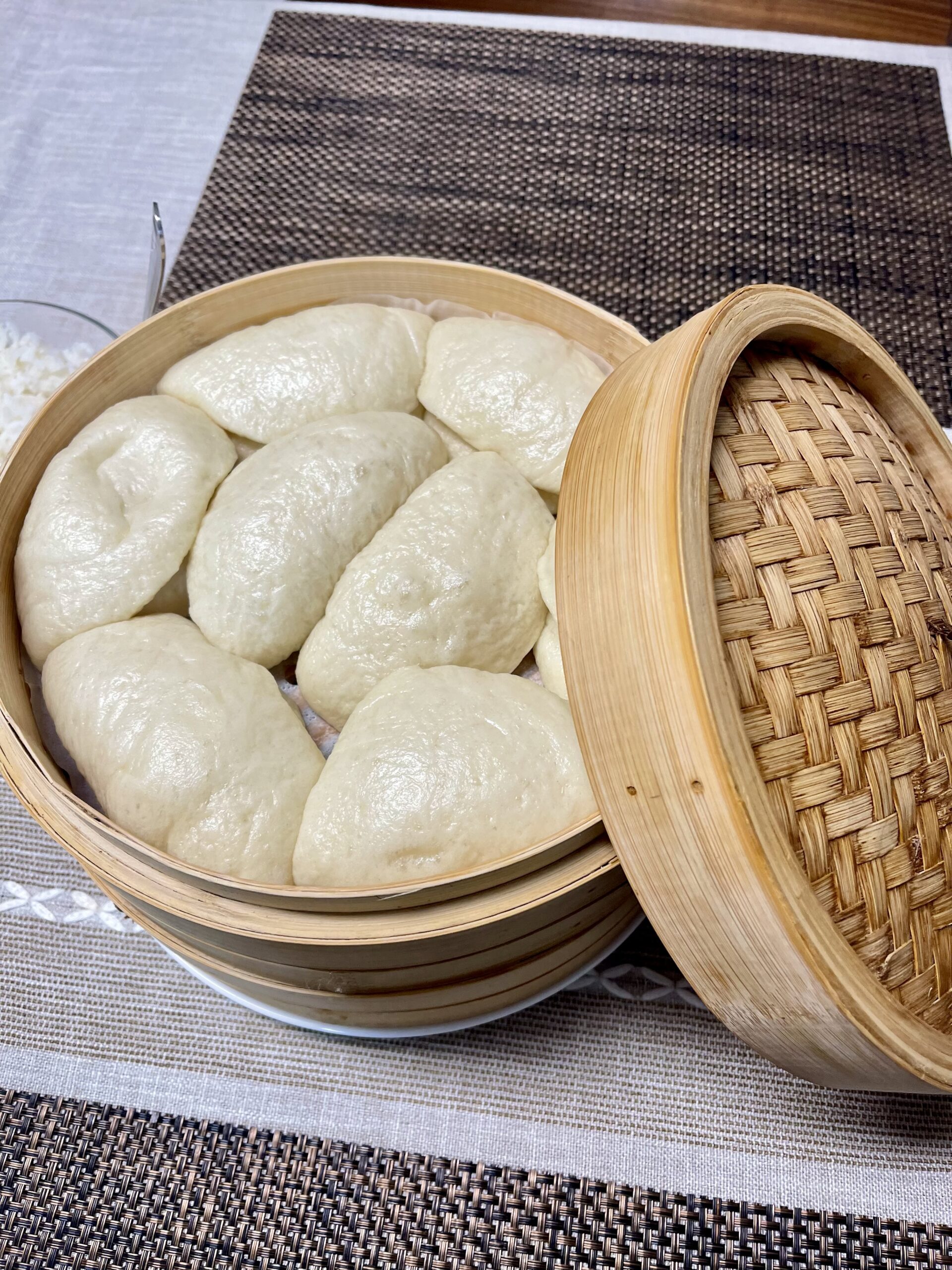
This post may contain affiliate links. That means I may make a small commission on items purchased through links in this post at no extra cost to you! Affiliate Disclaimer
We absolutely love enjoying these with Chinese five spice marinated beef, rice, and a side of vegetables. They also make a wonderful alternative to biscuits or other bread buns. We’ve even paired them with hot dogs and taco meat! I’m a big fan of creative combinations!
SO WHAT IS BAO?
You might have heard of Gua Bao, also known as pork belly buns. This delightful street food from Asia is gaining popularity in many parts of the US! The “bread” part, known as Chinese Steamed Bao or Lotus Steamed Buns (Hé Yè Bāo (荷葉包)), is a steamed bread folded in half and typically filled with rich, savory meat, similar to how a taco, hoagie roll, or hot dog bun might be used.
MY LATEST FOOD VIDEO
Steamed Bao Buns, also called Lotus Leaf Buns or Hé Yè Bāo (荷葉包), are truly wonderful. They offer a delightful twist on traditional US bread and biscuits. For me, they evoke fond memories of helping my dad and nai nai during our visits to Texas when I was younger. Although it wasn’t a regular meal in my household, I felt a bit nostalgic one day and decided to recreate my nǎi nai’s version, complete with her precise measurements (she always used a scale 🤫).
TIPS, TRICKS AND HELPFUL TOOLS
Before we dive in, let’s explore the details of what tools to use and how to use them effectively. If you’re already familiar and don’t need the explanations or photos, and you missed the ‘JUMP TO RECIPE’ button at the top, feel free to scroll down to the recipe card.
BREAD MACHINE TIPS
Traditionally, steamed bao buns are crafted by hand. However, during the pandemic, my husband gifted me with a bread machine. Initially, I only used it make and brake bread. However, once I discovered the dough setting, I embarked on an exploration of various dough types and have since become an avid user. Honestly, my bread machine has transformed into a dough maker, and I haven’t looked back since.
- Adhere to the instructions provided by your bread machine. The specific order in which your bread machine requires the ingredients guarantees a perfect dough.
- Instant yeast is the most effective yeast for your bread machine (my bread machine is relatively forgiving, so I have been able to use dry active yeast without issue, but as far as I am aware, all bread machines require instant yeast for their respective recipes). Therefore, to guarantee success, use instant yeast/bread machine yeast.
- Milk should be warm, not cold or too hot. It is imperative that your milk is between 105°F and 115°F. Any warmer temperature will kill the yeast, while any cooler temperature will result in yeast present in your dough and possible sad looking bread.
BAMBOO STEAMER AND WOK
When using a wok for steaming, it’s crucial to add the right amount of water. The water level should be high enough to submerge the bottom rim of the steamer, which helps prevent scorching. However, it should also be low enough to ensure that the bubbling water does not touch the inside of the bottom steamer tray or the food on it, as this can create a messy result.
- Begin by positioning the bamboo steamer in your wok or in another wide-rimmed, shallow pan, such as a wide skillet.
- Fill the pan with enough water so that it rises about a quarter-inch to half an inch above the bottom rim of the steamer.
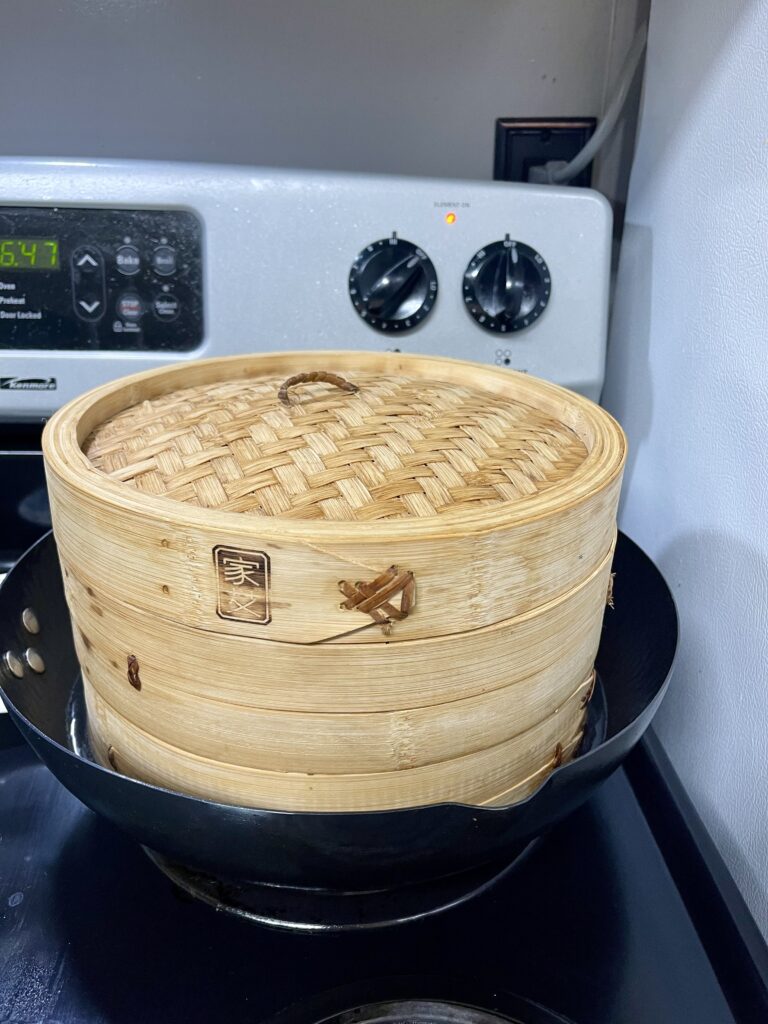
If you’re in the market for a quality wok, I highly recommend the Bielmeier 13″ Carbon Steel Wok. It’s genuinely my favorite among all the woks I’ve owned or received. This wok is a true workhorse for me. I use it for deep frying, stir-frying, steaming, and making fried rice !
KITCHEN TOOLS FOR SUCCESS
In addition to the wok and bamboo steamer, here are a few other items you’ll need to make things easier.
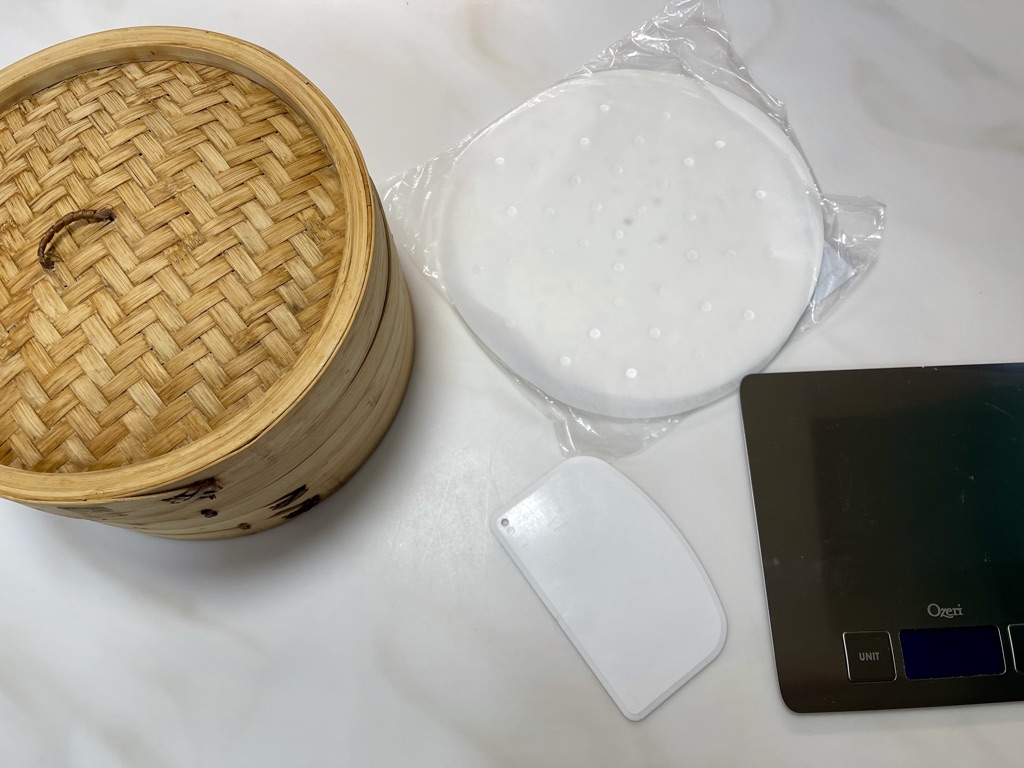
SHOP THIS POST

French Marble 11″ Rolling Pin with Base
Buy Now →
Ozeri Touch Professional Tempered Glass Digital Kitchen Scale, White
Buy Now →
Pastry Brushes for Baking Basting Brush with Boar Bristles
Buy Now →HOW TO MAKE BAO
This is the jist of how to make the bao.
- Place on ingredients together, according to your bread machine (mine has me putting the sugar, salt, milk, and baking powder in first. Then the Flour, and last the yeast).
- Set to the dough setting, and let the machine do the rest.
- Once the dough is done, roll it out onto your countertop/table. Knead the dough a couple of times to create a nice-sized ball. It shouldn’t be too sticky, but if it is, add a little flour as you kneed it until it is no longer too sticky. You should be able to work it with your hands without issues.
- Weigh out the bao into 48-gram pieces, then roll them into balls (you might have to do a pinch at the bottom and roll).
- Taking one at a time, using your rolling pin, roll out small circles about 4 inches (8 cm) in diameter.
- Then brush olive oil onto one side and fold in half (the oil side is the inside of the fold).
- Place onto the lined steamer basket. Repeat this process (roll circles, oil, fold, etc) until you fill the trays.
- Let them rest for 20 minutes.
- Get your water boiling, into your wok² and carefully place your steamer basket into the water (I highly recommend using silicone oven mitts).
- Steam for 20 minutes.
- Take off the wok/pan (use silicone oven mitts for this step).
- You can eat them right away, they will be HOT! Otherwise, lift the lid and give them a couple of minutes to cool.
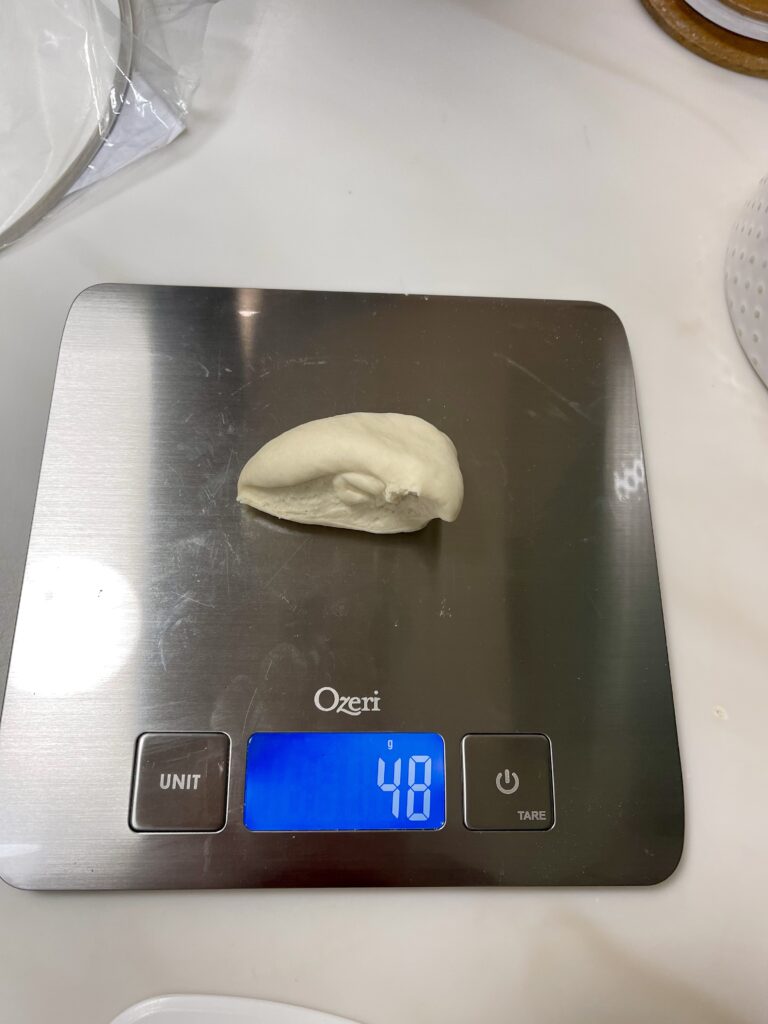
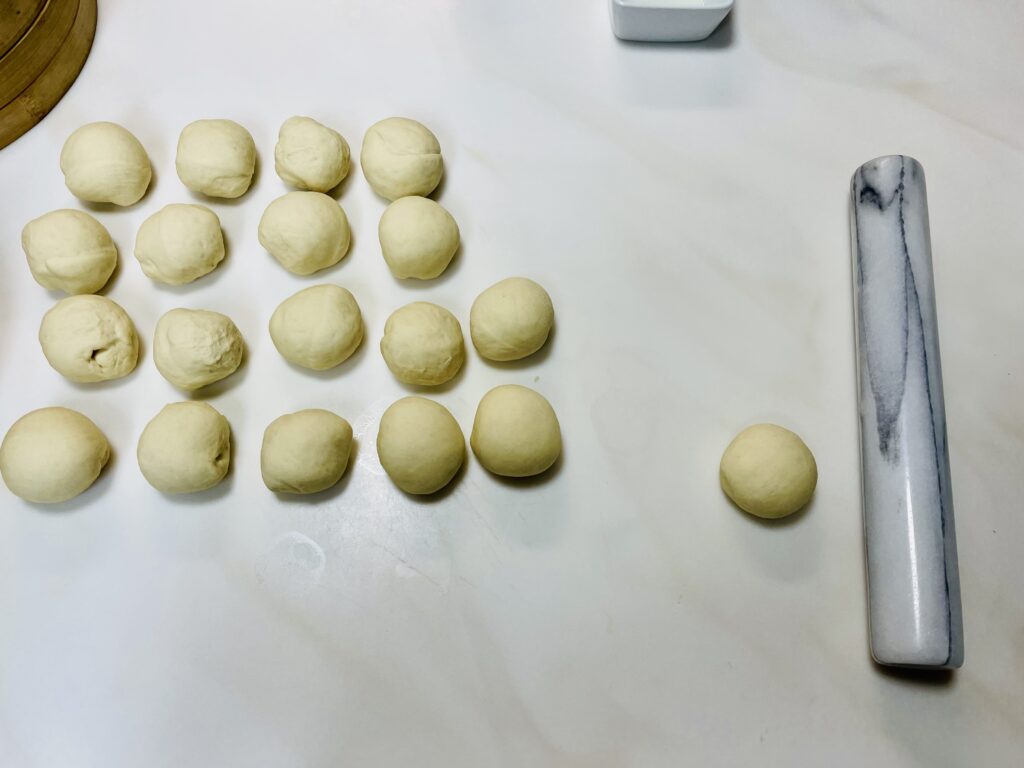
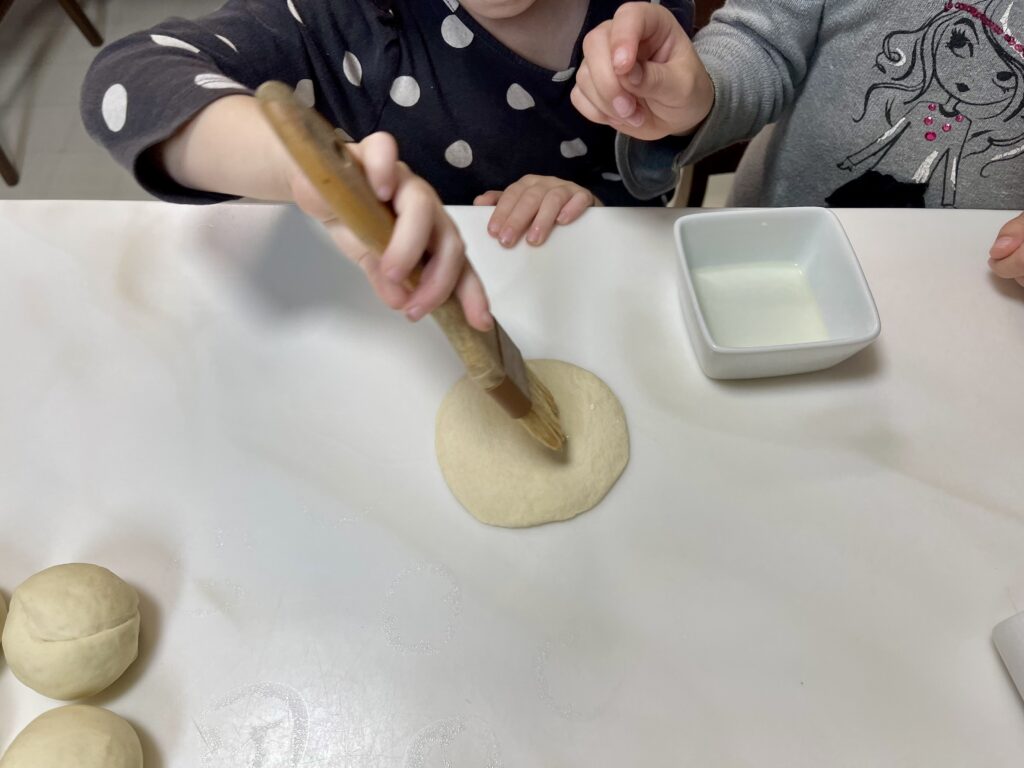
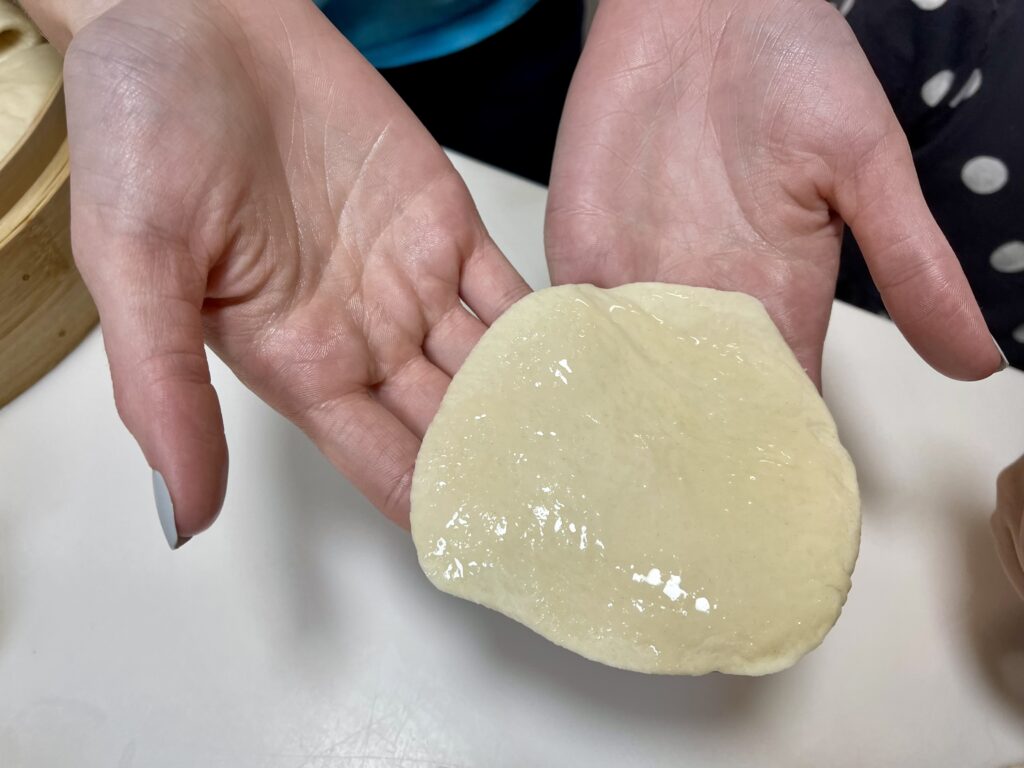
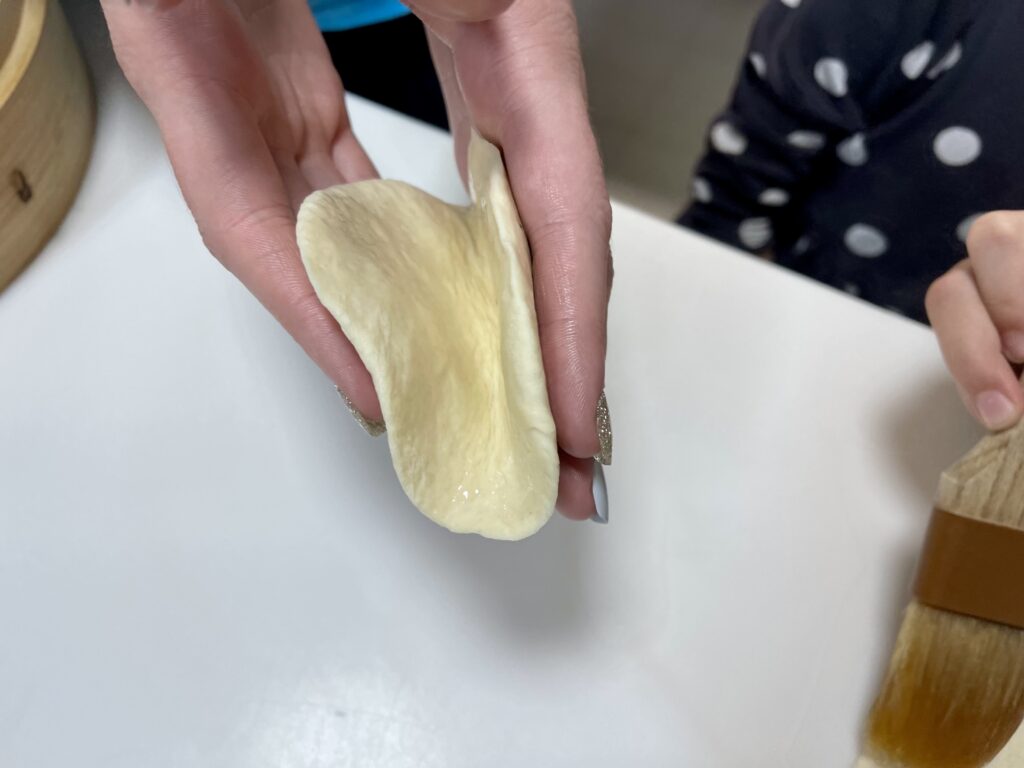
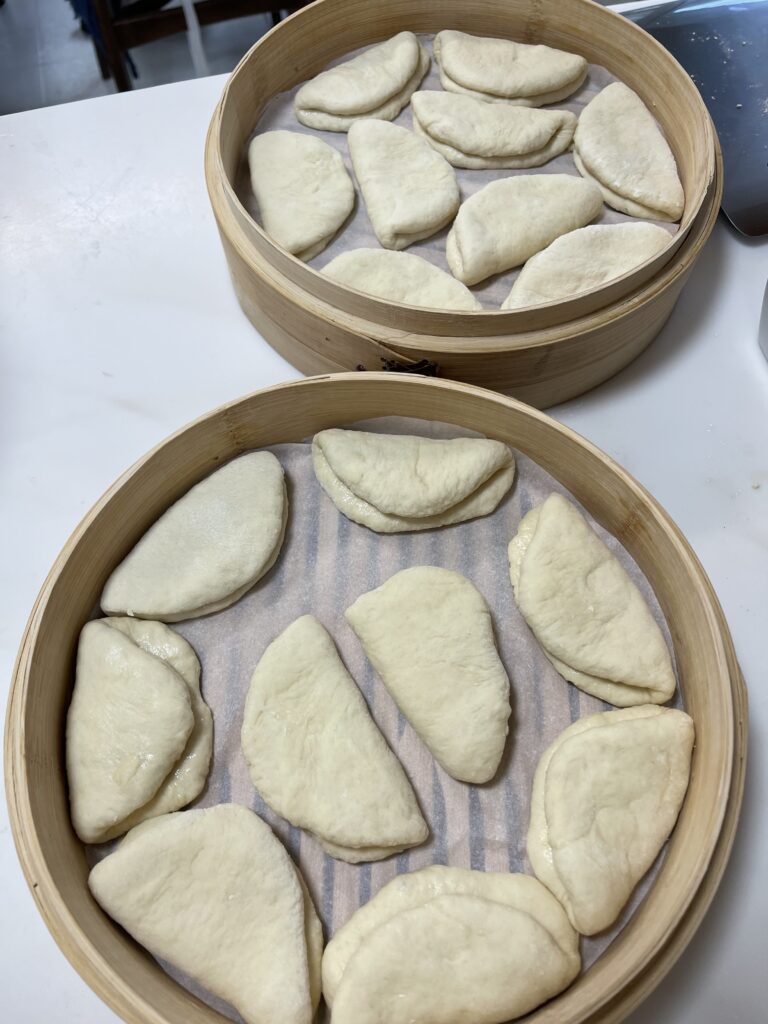
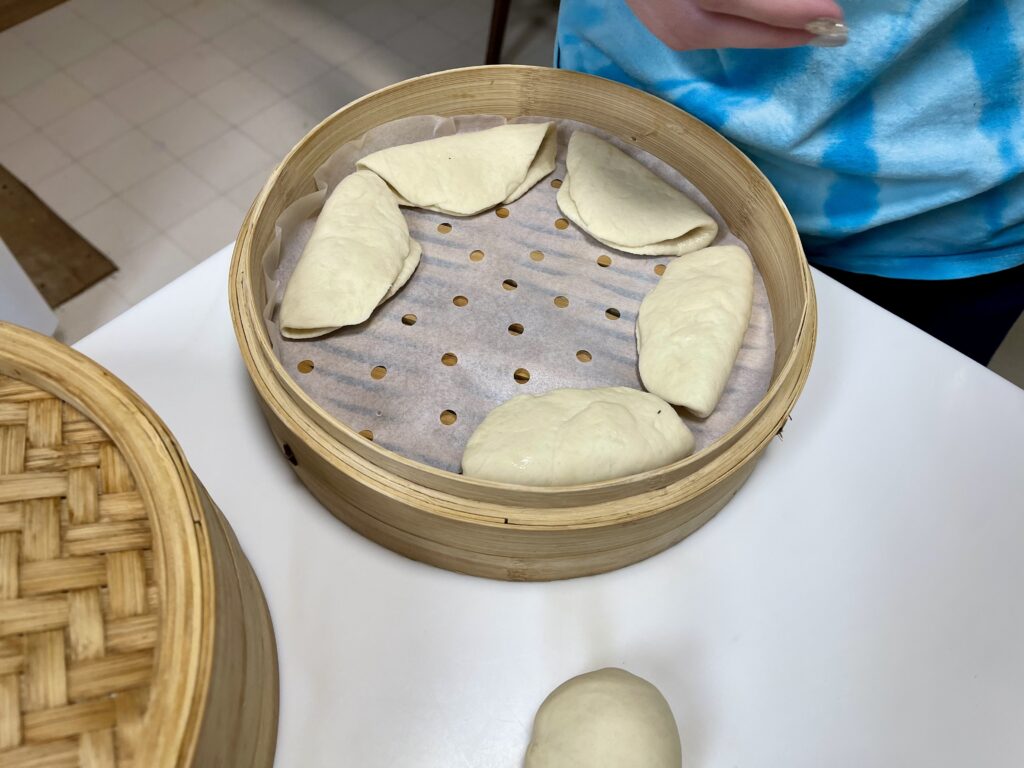
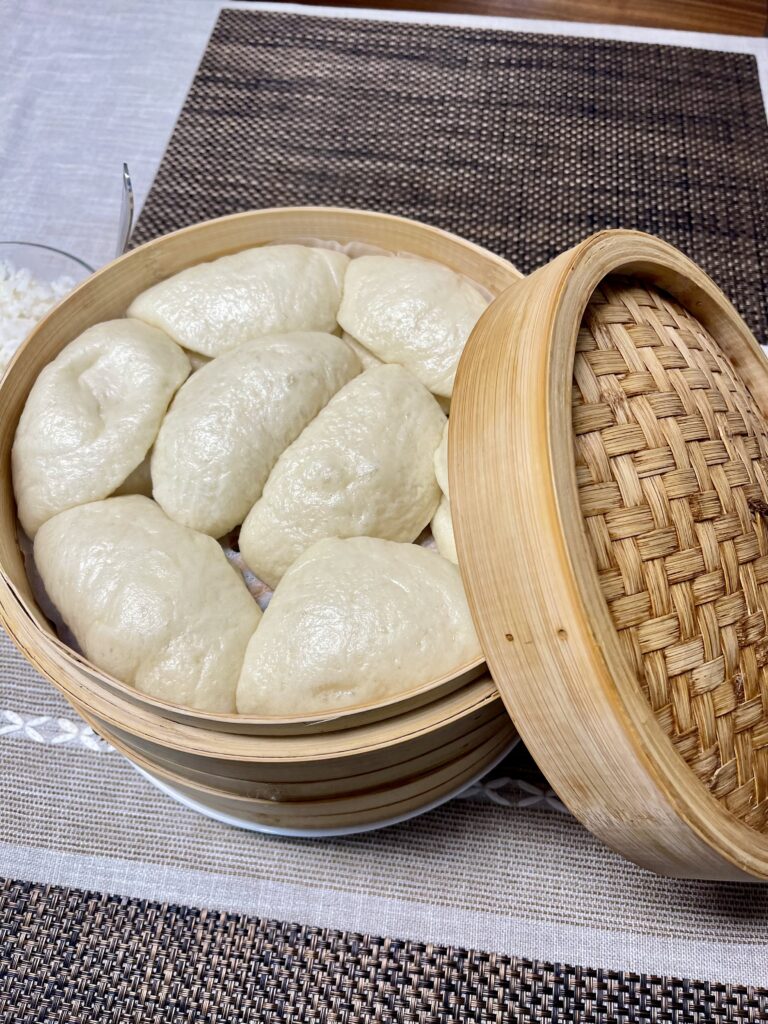
COOKING WITH KIDS
DISCLOSURE: These tips are generalized, and meant to be suggestive. Everything I’m sharing I do with my kids, and they are all different even within my own five. So please take these as suggestions or ideas and if you think your child needs more or less help, then go with what you and your child are comfortable with. Ultimately, you know your kids, do what YOU think is best.


ENJOY AND SHARE
Let me know how your steamed bao buns turned out! Your star ratings and comments are tremendously helpful! Your input helps me improve future posts and the blog overall, and in the end, it all helps me to help YOU. Thank you!
Don’t forget to tag me on Instagram or Facebook, @jenngiamsmith #JennGiamSmith I will always share your posts on my stories and tag you! You can also share it on this post’s Pinterest Pin! Don’t forget to follow me on Pinterest for a steady stream of recipe (and other) inspiration!
It’s always wonderful to see loved ones coming together over delicious food.
Here are a few of my favorite dishes that go perfectly with your freshly made steamed bao buns
- Chinese Five Spice Marinade
- Orange Sesame Chicken
- Cranberry Chicken Salad Sandwich
- Roasted Butternut Squash Soup

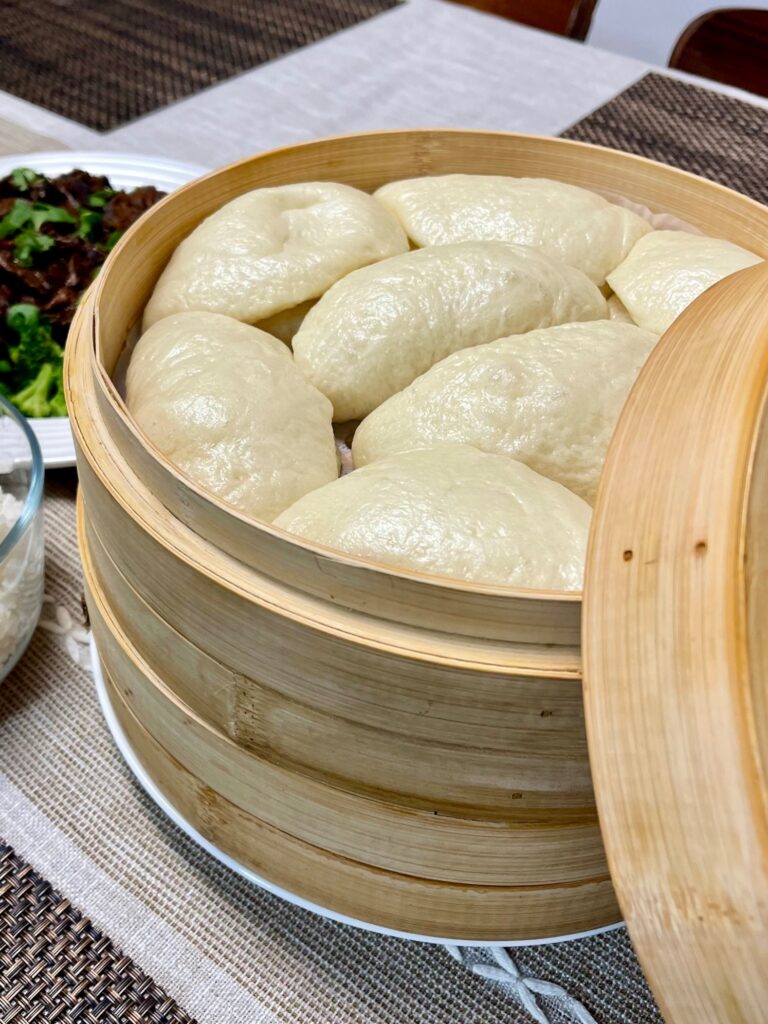
Steamed Bao Buns (using a bread machine)
Steamed Bao Buns (Baozi, 包子) are amazing. A popular street food in Asia and now in the US and are such a fun change up to your bread game!
- Total Time: 3 hours
- Yield: 10 Bao (Baozi, 包子) 1x
Ingredients
- 2 cups all-purpose flour (I recommend using the ‘scoop and swipe’ method)
- 1 teaspoon instant yeast [see NOTES 1 for details]
- 1 teaspoon double-acting baking powder
- 2 teaspoons granulated sugar [see NOTES – SUBSTITUTIONS 1 for details]
- 1/4 teaspoon kosher salt
- 3/4 cup warm whole milk [see NOTES 2 for details]
- Vegetable oil (for brushing) [see NOTES – SUBSTITUTIONS 2 for details]
Instructions
- Combine all ingredients in the order specified by your bread machine (mine requires me to add the sugar, salt, milk, and baking powder first, followed by the all-purpose flour, and finally the yeast).
- Set the bread machine to the dough setting and let the machine do the rest!
- Once the dough is ready, roll it out onto a flat, lightly floured surface, such as a countertop or table. Knead the dough a few times until it forms a smooth, compact ball that bounces back. Ensure that the dough is not excessively sticky; if necessary, add a small amount of flour while kneading until it becomes sufficiently pliable. You should be able to handle the dough without difficulty.
- Using a kitchen scale, weigh the bao buns to approximately 48 grams each and then roll them into balls. You may need to pinch the bottom of each bun and roll it slightly to achieve a smooth shape.
- Take one bao bun at a time and use a rolling pin to roll out small circles approximately 4 inches (8 cm) in diameter.
- Brush one side of each bao bun with olive oil. Fold the bao buns in half, with the oiled side facing inward.
- Place the folded bao buns in a lined bamboo steamer. Repeat this process until the steamer baskets are filled.
- Allow the bao buns to rest for 20 minutes.
- Prepare a wok with water (refer to NOTES 3 for specific instructions), turn on the burner to high, and bring the water to a gentle boil. Carefully place the steamer basket inside the water, using silicone oven mitts for added safety.
- Steam the bao buns for 20 minutes.
- Remove the wok/pan from the water using silicone oven mitts.
- Keep the lid on the basket for 5-10 minutes to allow the buns to cool.
- Serve with your favorite protein, and enjoy!
Equipment
 Buy Now →
Buy Now → 
Bielmeier 12.5″ Carbon Steel Wok Pan with Lid, Gloves, & Cookware Accessories
Buy Now →
Joyce Chen 2-Tier Bamboo Steamer Baskets, 10-Inch
Buy Now →Notes
- Instant Yeast works the best for all bread machines (mine is less picky I have been able to use dry active and everything turn out fine, but as far as I know, all bread machines require Instant yeast for their own recipes). So to ensure success, use instant.
- Milk should be warm, not cold or excessively hot. Your milk should be between 105°F and 115°F. Any warmer temperature will kill the yeast, while a temperature below this range will introduce yeast into your dough.
- It is crucial to fill your wok with the appropriate amount of water. The water should reach a height that submerges the bottom rim of the steamer, preventing scorching. However, it must also be shallow enough to prevent the bubbling water from contacting the interior of the bottom steamer tray and the food resting on it, resulting in an unpleasant mess. You can achieve this by doing the following:
- Begin by placing the bamboo steamer within your wok (or a frying pan of sufficient capacity to accommodate the steamer).
- Fill the wok with water until it reaches the bottom rim of the steamer by approximately a quarter to half an inch.
SUBSTITUTIONS
- Prep Time: 20 minutes
- Cook Time: 20 minutes
- Category: bread, Dinner
- Method: Steam
- Cuisine: Chinese, Chinese American
WANT TO REMEMBER THIS POST?
Pin it to your favorite Pinterest Board!



Photo, Prop Styling, and Food Styling by Jenn Smith © 2021 Always Jenn Smith; Jenn Smith, LLC
This Blog Post is © 2021 Always Jenn Smith™; Jenn Smith, LLC (FKA Smith Country, LLC) See below for details
Please Be Respectful
All rights reserved. You may NOT sell, trade, share or redistribute this Steamed Bao Buns (using a bread machine) recipe in any way or use any of my photographs for your site. If you are linking back to this post to a list of recipes, giving credit for the recipe to myself and my site, you may use ONE photo. You must site me and my blog as the creators of the recipe and give credit for the photo. ©2023 Always Jenn Smith; Jenn Smith, LLC
Jenn Smith of Always Jenn Smith™; Jenn Smith, LLC participates in the Amazon Services LLC Associates Program, an affiliate advertising program designed to provide a means for sites to earn advertising fees by advertising and linking to amazon.com. As well as the Apple affiliate program now called the Performance Partners Program.
This site displays third-party ads and contains affiliate links, See terms and conditions for ALL affiliates.
If you have any questions feel free to comment below or e-mail me directly.
Thank you for visiting!


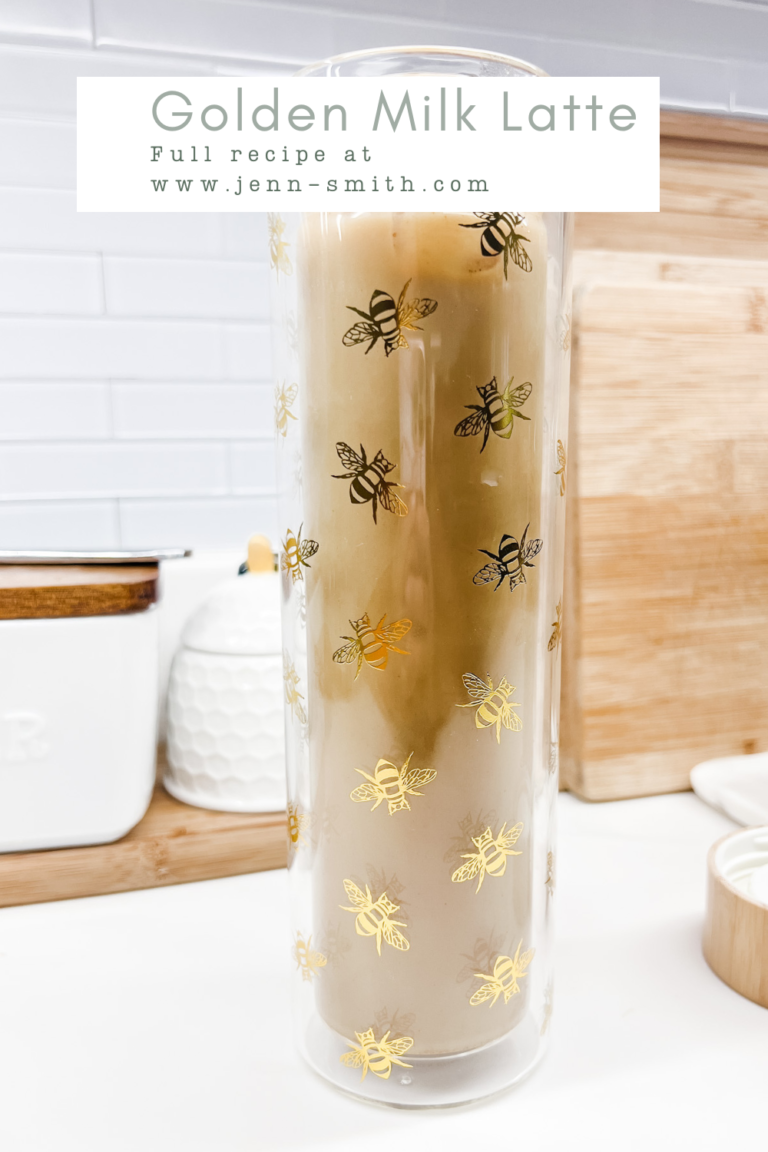
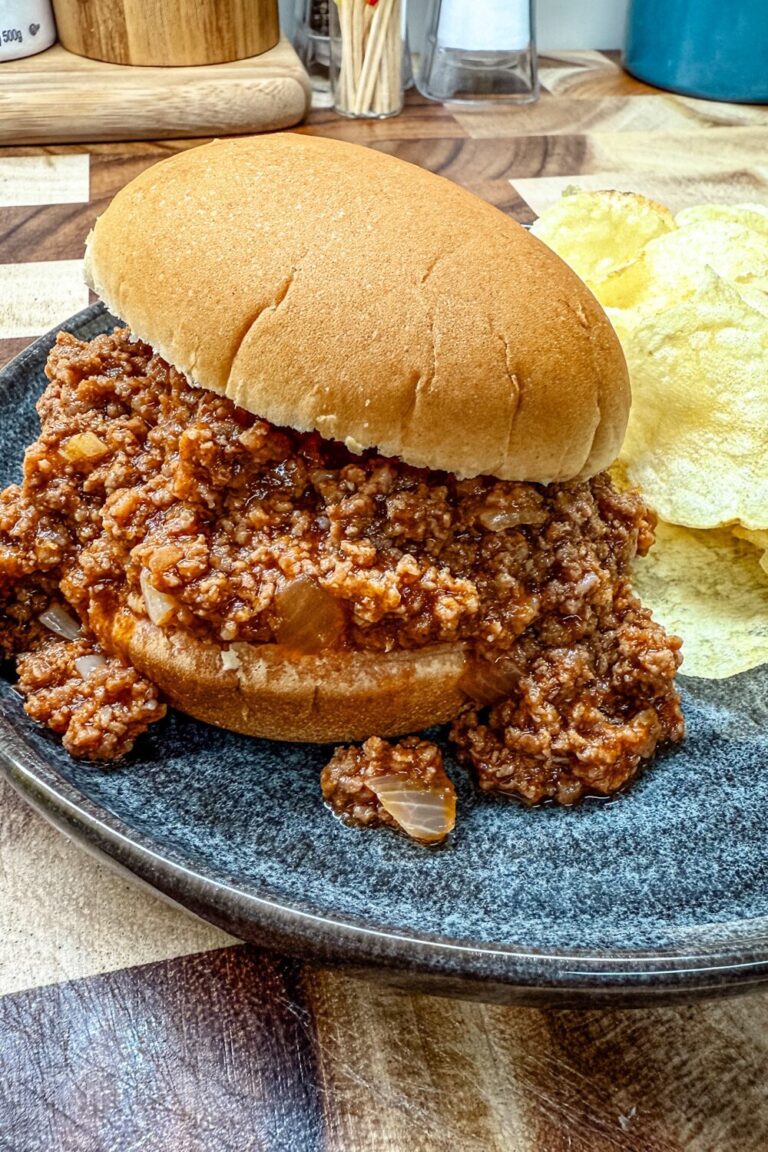
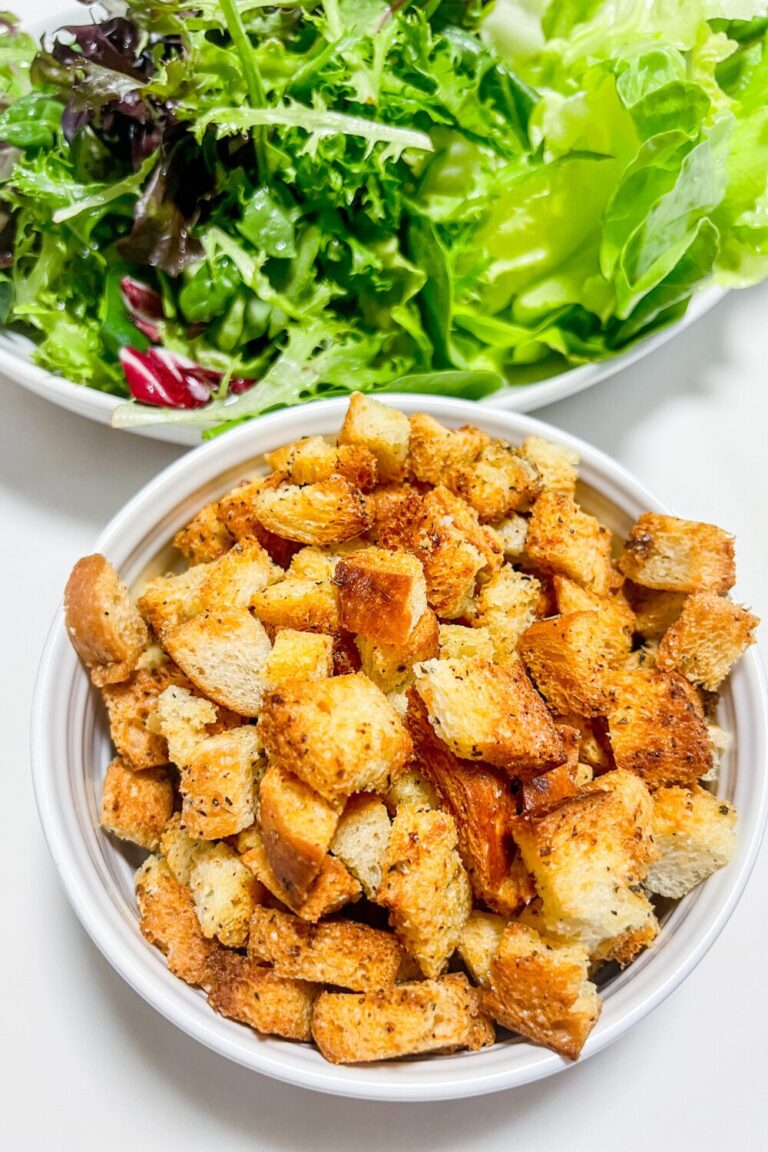
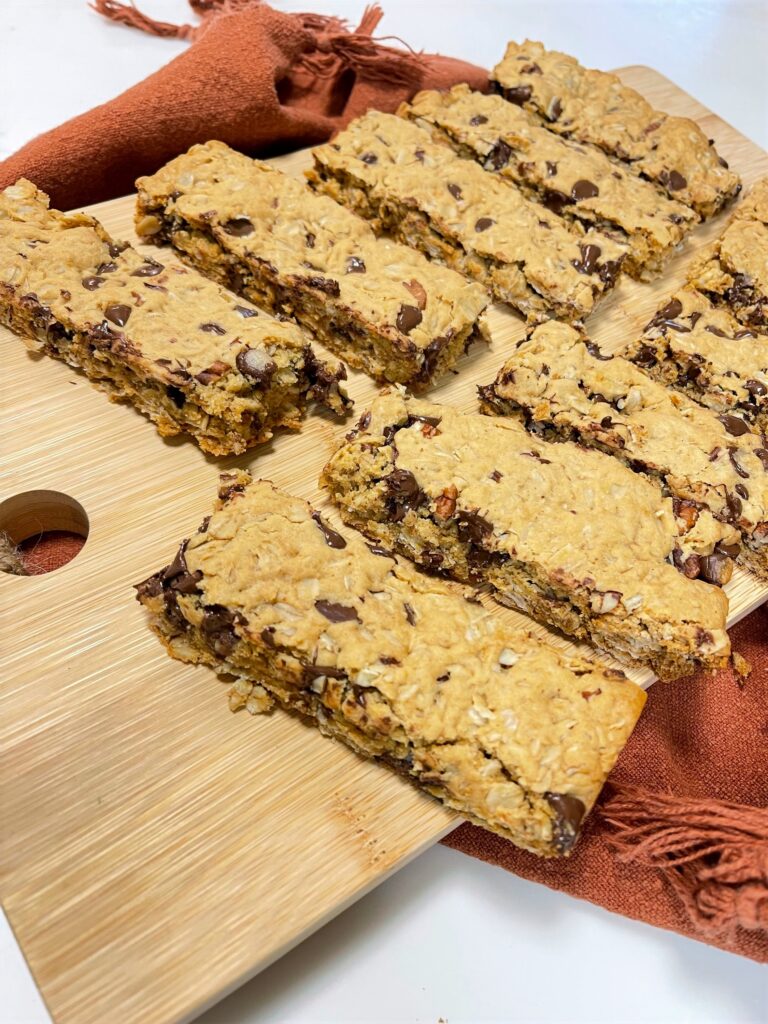
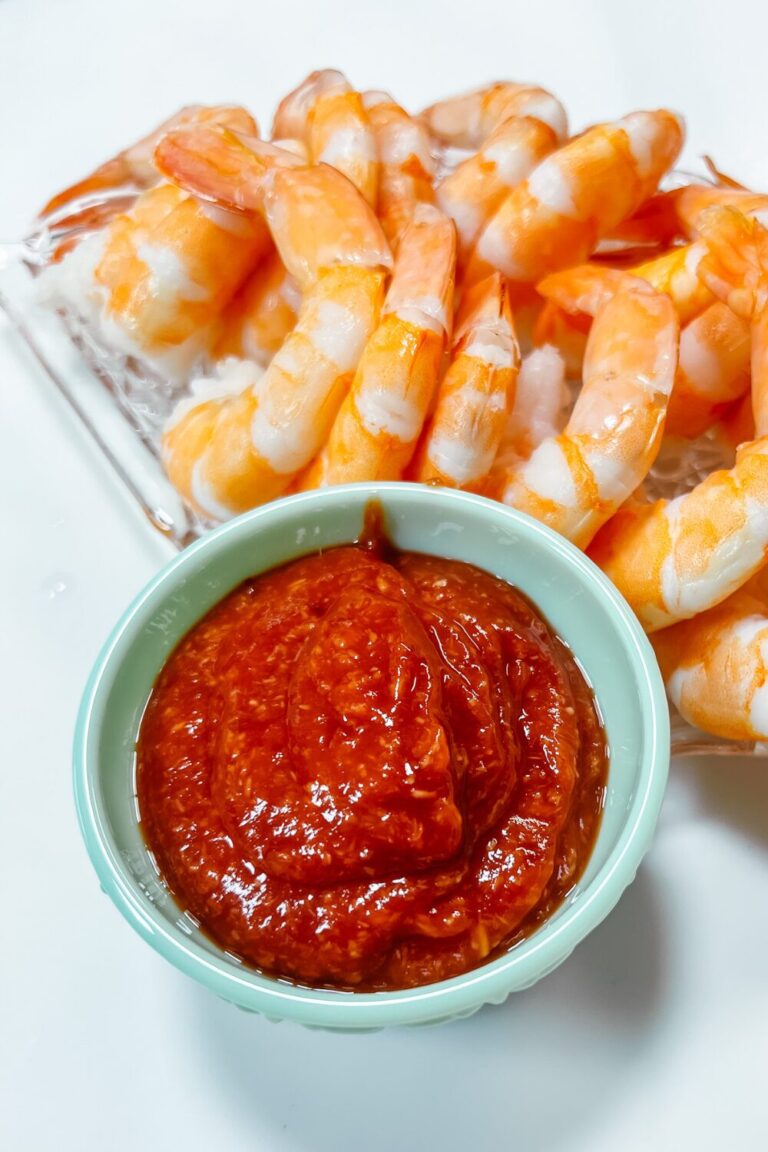
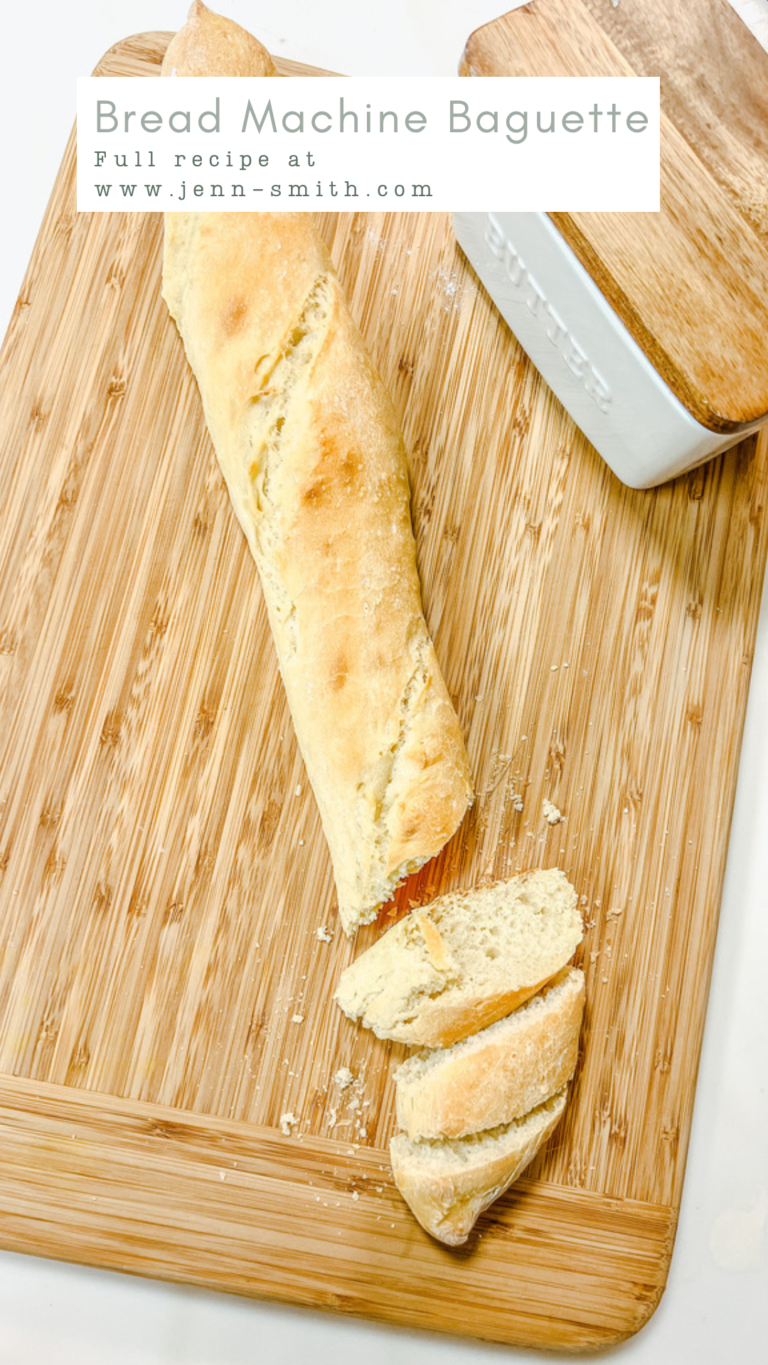
I am so glad I found this recipe for my bread machine! It was so simple and easy and taste perfect! Thank you for posting this!! Saved me time big time!
Thank you so much! I’m so glad you enjoyed it!
Can i make these ahead of time? like the day before? do I just reheat them in the steamer again?
Great question! You absolutely can. The best way to reheat bao buns is to steam them for 2-3 minutes (7-8 minutes for frozen buns). But you can also microwave one as well. Just wrap a single bun loosely with a damp paper towel. Place it on a microwave-safe plate and reheat for about 15-20 seconds (20-30 if frozen) until piping hot. Just be careful when microwaving or you could and up with dried out or even hard bao.